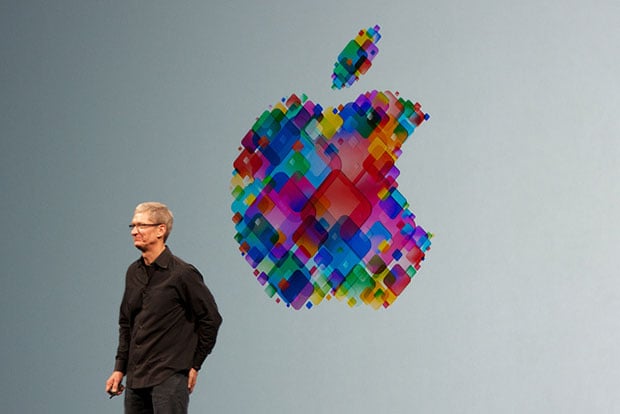Apple Runs Afoul Of US Justice Department Over Encrypted iMessages, Has No Plans To Back Down
The FBI came a’knockin’ at Apple’s doorstep this past summer, but instead of opening the door to welcome in the agency, Apple simply turned its back and went about its business. This standoff between Apple and the Justice Department has gotten a bit testy in recent months, with the latter imploring the former to hand over real-time access to iMessages to aid in ongoing investigations involving suspected criminals running drugs and/or guns.
However, Apple has simply ignored calls from the Justice Department to hand over access to text messages because it simply has no way of doing so. In Apple’s case, it uses end-to-end encryption for both its iMessage messaging and FaceTime video chatting services. Since the encryption/decryption is handled by the actual phones, with Apple not storing its own copies of the messages, there’s absolutely nothing that the tech giant can hand over to government officials that are eager to use any tool at its disposal to nab criminals.
Yet another security feature available to users of iPhones and Android smartphone is the use of full device encryption. Without knowing the rightful owner’s password, a locked device cannot be accessed by a third party. That means no access to on-device messages, pictures, or contact information which could be used for investigative purposes.

FBI Director James Comey last year stated that companies like Apple and Google are creating a huge headache for law enforcement agencies across the country. “The notion that we would market devices that would allow someone to place themselves beyond the law, troubles me a lot,” said Comey in an interview with CBS’ 60 Minutes in October 2014. “As a country, I don't know why we would want to put people beyond the law.
“The notion that people have devices, again, that with court orders, based on a showing of probable cause in a case involving kidnapping or child exploitation or terrorism, we could never open that phone? My sense is that we've gone too far when we've gone there.”
Even former U.S. Attorney General Eric Holder railed against device encryption, playing up the “think of the children” angle. “Many [perpetrators] take advantage of encryption and anonymizing technology to conceal contraband materials and disguise their locations,” said Holder in September 2014. “And through unceasing innovations in mobile technology, predators are continually finding more opportunities to entice trusting minors to share explicit images of themselves.”
But perhaps the most comical commentary with regards to encryption came from former NSA general counsel Stewart Baker. He warned that both Apple and Google were walking down a path that would have the companies eventually fail in the marketplace like BlackBerry, which was one of the first to implement broad encryption support. “[It’s] the same business model that Google and Apple are doing now,” said Baker. “That has not ended well for BlackBerry. Tech companies are picking a big public fight with the NSA because it looks good, as opposed to changing the ability of government to get data.”
Apple (and its competitors) for now are standing behind its decision to protect user privacy and not roll over for government agencies. Apple has countered government calls to provide backdoors to bypass device encryption as highly dangerous and detrimental to its customers. After all, what happens if a backdoor “key” somehow falls into the wrong hands and is exploited by nefarious parties? Millions of customers could be put at risk.
And if the U.S. governments cybersecurity record is anything to go on, companies like Apple, Google, and Microsoft have every right to be concerned.

